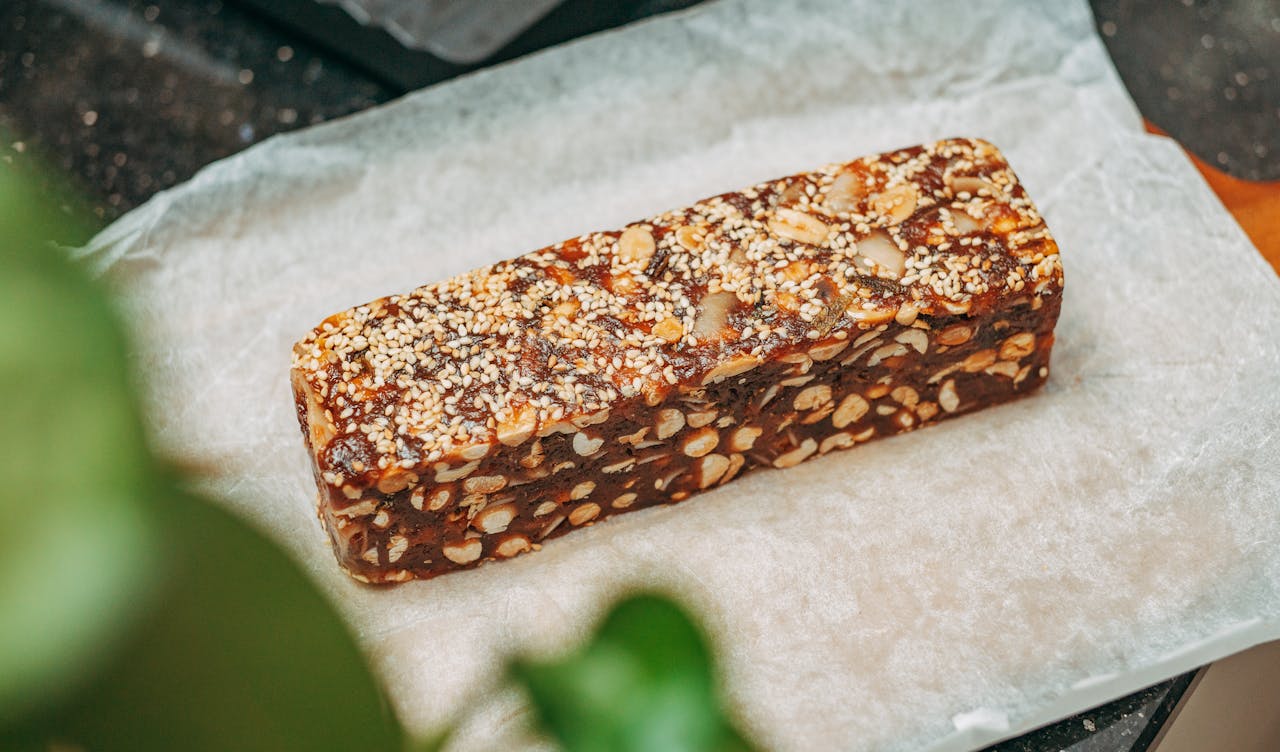Delicious Peanut and Chocolate Protein Bars: A Healthy Snack Option

Peanut and Chocolate Protein Bars: The Perfect Blend of Taste and Nutrition
Introduction
Are you looking for a tasty and nutritious snack that satisfies your sweet tooth while providing a protein boost? Look no further than peanut and chocolate protein bars! These delectable treats combine the rich flavors of peanuts and chocolate with the health benefits of protein, making them a popular choice for fitness enthusiasts, busy professionals, and anyone seeking a balanced snack option.
What Are Peanut and Chocolate Protein Bars?
Peanut and chocolate protein bars are convenient, pre-packaged snacks that blend the indulgent taste of peanuts and chocolate with a high protein content. These bars typically contain a mixture of ingredients such as:
- Peanuts or peanut butter
- Chocolate chips or cocoa powder
- Protein powder (whey, soy, or plant-based)
- Oats or other grains
- Sweeteners (natural or artificial)
- Binding agents (e.g., syrups or oils)
The combination of these ingredients creates a satisfying snack that can help curb hunger, provide energy, and support muscle recovery after exercise.
Benefits of Peanut and Chocolate Protein Bars
- Protein-packed: As the name suggests, peanut and chocolate protein bars are an excellent source of protein, which is essential for muscle growth, repair, and overall body function.
- Convenience: These bars are easy to carry and require no preparation, making them ideal for on-the-go snacking or as a quick post-workout refuel.
- Satisfying taste: The combination of peanuts and chocolate creates a delicious flavor profile that can help satisfy cravings for sweets without resorting to less nutritious options.
- Nutrient-dense: Many peanut and chocolate protein bars contain additional vitamins, minerals, and fiber, contributing to a well-rounded snack.
- Energy boost: The balanced mix of protein, carbohydrates, and healthy fats in these bars can provide sustained energy throughout the day.
How to Choose the Best Peanut and Chocolate Protein Bars
When selecting peanut and chocolate protein bars, consider the following factors:
- Protein content: Look for bars with at least 10-20 grams of protein per serving.
- Sugar content: Choose bars with lower sugar content, ideally less than 10 grams per serving.
- Ingredients: Opt for bars with natural, whole food ingredients and minimal artificial additives.
- Calorie count: Consider your dietary needs and choose bars that fit within your daily calorie goals.
- Dietary restrictions: Check for allergen information and ensure the bar meets any specific dietary requirements (e.g., gluten-free, vegan).
Homemade Peanut and Chocolate Protein Bars Recipe
For those who prefer a DIY approach, here's a simple recipe to make your own peanut and chocolate protein bars at home:
Ingredients:
- 1 cup natural peanut butter
- 1/4 cup honey or maple syrup
- 1/4 cup chocolate protein powder
- 1 cup rolled oats
- 1/4 cup mini chocolate chips
- 1/4 cup chopped peanuts
Instructions:
- In a large bowl, mix peanut butter and honey until well combined.
- Add protein powder and mix thoroughly.
- Fold in oats, chocolate chips, and chopped peanuts.
- Press the mixture into a lined 8x8 inch baking pan.
- Refrigerate for at least 2 hours before cutting into bars.
- Store in an airtight container in the refrigerator for up to a week.
This homemade version allows you to control the ingredients and customize the flavors to your liking.
When to Eat Peanut and Chocolate Protein Bars
Peanut and chocolate protein bars can be consumed at various times throughout the day, depending on your needs:
- Pre-workout: Eat a bar 30-60 minutes before exercise to provide energy for your workout.
- Post-workout: Consume a bar within 30 minutes after exercise to support muscle recovery and replenish energy stores.
- Meal replacement: In a pinch, a protein bar can serve as a quick meal replacement, though it's best not to rely on them as a regular substitute for whole foods.
- Snack time: Enjoy a bar between meals to curb hunger and maintain stable blood sugar levels.
- Travel: Pack protein bars for convenient, nutritious snacking while on the go.
Potential Drawbacks of Peanut and Chocolate Protein Bars
While peanut and chocolate protein bars offer many benefits, it's essential to be aware of potential drawbacks:
- High calorie content: Some bars can be calorie-dense, which may not align with weight loss goals.
- Added sugars: Certain brands may contain high amounts of added sugars, which can contribute to health issues if consumed in excess.
- Processed ingredients: Some bars may contain artificial additives or heavily processed ingredients, which may not be ideal for those seeking whole food options.
- Cost: Pre-packaged protein bars can be more expensive than preparing whole food snacks at home.
- Allergies: Peanut and chocolate protein bars are not suitable for individuals with peanut or chocolate allergies.
To mitigate these drawbacks, choose bars with clean ingredients, moderate calorie content, and lower added sugars. Additionally, consider making your own bars at home for better control over ingredients and cost.
Conclusion
Peanut and chocolate protein bars offer a convenient, tasty, and nutritious snack option for those seeking a balance between indulgence and health. By choosing high-quality bars or making your own at home, you can enjoy the benefits of these protein-packed treats while supporting your fitness and wellness goals. Remember to incorporate them as part of a balanced diet and consider your individual nutritional needs when selecting or preparing peanut and chocolate protein bars.
Whether you're an athlete looking for post-workout recovery, a busy professional in need of a quick energy boost, or simply someone with a sweet tooth seeking a healthier alternative, peanut and chocolate protein bars can be a valuable addition to your snack repertoire. Experiment with different brands or homemade recipes to find the perfect peanut and chocolate protein bar that satisfies both your taste buds and nutritional requirements.




